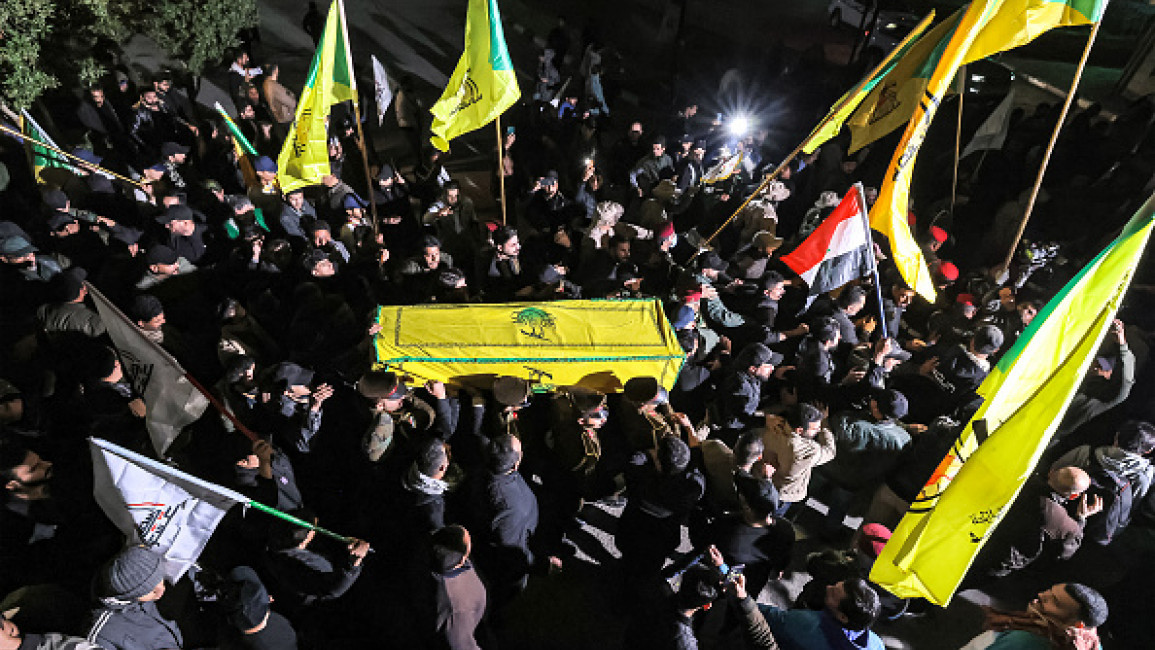Iraqi Kataib Hezbollah claims 'readiness to arm Jordanian fighters' against Israel
In a potentially game-changing development, Kataib Hezbollah, a pro-Iranian faction in Iraq, pledged its support for the Palestinian cause by claiming its readiness "to arm Jordanian fighters".
Abu Ali al-Askari, a prominent security official within the faction, announced via Telegram on Monday that they are "ready to arm the Jordanian fighters". This claim, if true, is considered a significant escalation in regional tensions amidst Israel's war on the besieged Gaza Strip.
The Islamic Resistance in Iraq, represented by Kataib Hezbollah and other Shia militias aligned with Iran, committed to supplying 12,000 fighters in Jordan with an array of weaponry, ranging from light and medium arms to tactical rockets, ammunition, and explosives. This decision, framed within the context of establishing a new front to bolster support for Gaza against Israeli aggression, underscores the group's "unwavering solidarity with their Palestinian brethren".
The timing of this announcement coincides with the resurgence of protests outside the Israeli embassy in Amman, Jordan, against the relentless Israeli war on Gaza. Despite diplomatic efforts by Jordan to broker a ceasefire and provide aid to Gaza, demonstrators have escalated their demands, including calls for the cessation of the "land bridge" facilitating trade between Jordan and Israel.
Al-Askari stressed that they would translate their words to action with sufficient approval from Hamas or Islamic Jihad and would start by "cutting off the land route that connects Jordan to the Zionist entity".
While Kataib Hezbollah's pledge of support has garnered attention and concern from regional observers, Iraqi political analysts suggest that Iran's influence may be driving this move, with potential aims of destabilizing Jordan or leveraging influence in regional dynamics.
We will start by cutting land links leading to the Zionist entity,"
— Malcolm X (@malcolmx653459) April 3, 2024
the statement reads.
The statement by Abu Ali al-Askari came after Israel launched a missile attack on an Iranian diplomat's house in Syria,killing several senior IRGC (Islamic Revolution Guards Corps) officials pic.twitter.com/6oZleL8AXB
Meanwhile, the Iraqi Foreign Ministry has remained conspicuously silent on the matter, refraining from commenting on the escalating tensions. Concurrently, Iraqi Prime Minister Mohammed Shia al-Sudani is preparing for a crucial visit to the United States, where discussions on regional security dynamics, particularly the role of Iranian-backed militias, are expected to take center stage.
As tensions continue to mount and regional dynamics evolve, Kataib Hezbollah's support for the Palestinian cause serves as a stark reminder of the intricate complexities of the Middle East conflict. The ramifications of this development are poised to reverberate across the region, potentially impacting diplomatic efforts to de-escalate tensions and resolve longstanding conflicts.
This announcement also follows the recent decision by the Hezbollah Brigades to suspend military operations against US occupation forces in Iraq and Syria, signalling a potential shift in the group's priorities and strategic objectives. Observers in Iraq are closely monitoring the situation, particularly in anticipation of Prime Minister al-Sudani's upcoming visit to the United States, which may usher in a new chapter in US-Iraqi relations and regional security dynamics.



